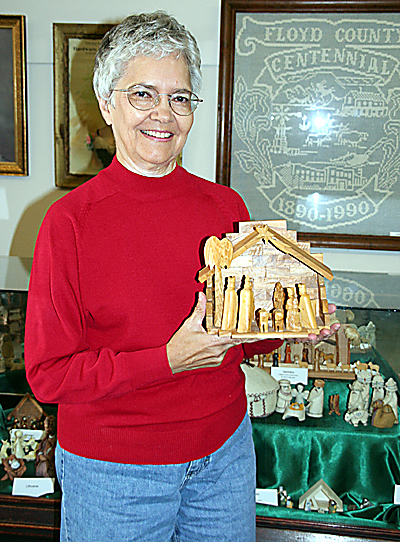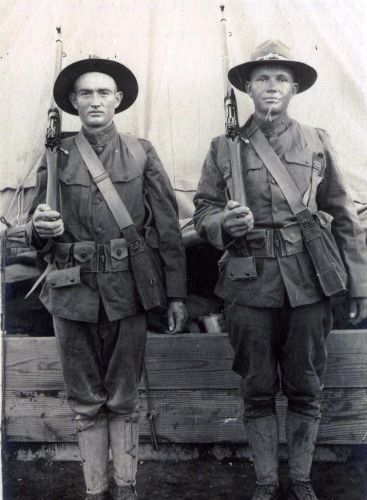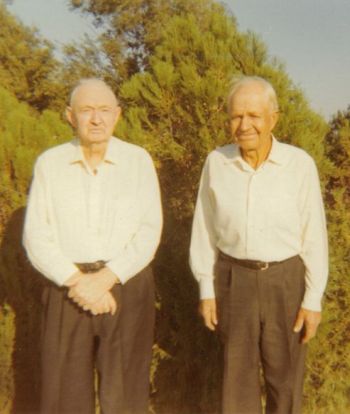In the movie Forrest Gump, Forrest sits next to his mother at her death bed. They have a conversation that is, on the surface, about Forrest’s destiny. Underneath, however, it is a conversation about what Forrest is going to do without his beloved mother.
“I happen to believe you make your own destiny. You have to do the best with what God gave you.”
“What’s my destiny, Mama?”
“You’re gonna have to figure that out for yourself. Life is a box of chocolates, Forrest. You never know what you’re gonna get.”
Somehow, in my mind, when I remember that quote, I turn Forrest’s question into “What’s my legacy, Mama?”
I think one of the reasons I am so interested in genealogy is because it helps me see that I do fit in this greater family, this web of humanity, in some way. I suppose I have felt like a bit of an outsider. Had I been born at an earlier time, I most likely would have died. I was blue from lack of oxygen. I was placed in an incubator for some time and I became well enough to go home. Later, when I was about six months old, a bout of gastrointeritis nearly killed me, and probably would have, had my grandmother not insisted I receive immediate medical care. I should explain that my mother was very worried about me, but prepared to do as the medical officals said and take me home — to wait, in other words. She was a young mother, inexperienced, and in her shoes, I’d have followed the medical advice, too. My grandmother demanded to see the doctor, who recognized the gravity of my condition and admitted me immediately.
Ever since I found this out, I suppose it has been in the back of my mind that I was actually destined to die, that my life has been a gift that was not supposed to exist, and sometimes I wonder why. I wonder why I am here, why I am me instead of someone else. Why was I allowed to survive? It has to be something more than good medical care. Plenty of people have access to that and don’t survive. Plenty don’t have access, yet they still survive.
So I am wondering if there is some specific reason I’m here. One thing I do know is that had I not survived my birth and later illness, then my three children would never have existed. I don’t know what may have happened to my family had I died. I suppose it’s possible my sister may not have been born. The death of a child creates ripples. Would it have torn my parents apart? Perhaps they would have had a child earlier than my sister, and she wouldn’t have been born.
When I began studying genealogy, I realized how precarious our existence is. If one couple 200, no 1000 years ago had decided not to marry, or even decided not to have sex at the exact moment they did, I wouldn’t be here. And not just me — you, too. It’s a heavy burden to bear in some ways. The fact that I exist impresses upon me the feeling that I have an obligation to do something with that existence.
Sometimes, I ask myself if I’m spending my life wisely or wasting it. I would like to think being a teacher is a good way to spend one’s life, but I also know there are things I want to do and places I want to go.
I just finished Diane Setterfield’s book The Thirteenth Tale (you can read my review here). I was struck by the character Vida Winter’s assertion:
All children mythologize their birth. It is a universal trait. You want to know someone? Heart, mind and soul? Ask him to tell you about when he was born. What you get won’t be the truth; it will be a story. And nothing is more telling than a story.
Perhaps this is true. I think we also mythologize the lives of those who came before us, when we learn who they are, that is, and turn census records and the odd historical document or record into flesh and blood people. Perhaps we learn enough about them to give them certain characteristics. I think that many genealogists are more interested in the stories of their ancestors than in collecting names as far back as they can go.
Maybe it’s our way of fulfilling our legacy. In a way, it bothers me that a lot of people move through their entire lives, start to finish, without thinking about where they come from, where they are going, and what they are leaving behind.





